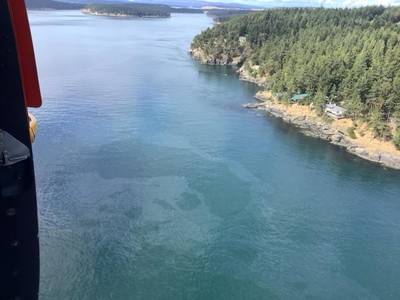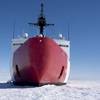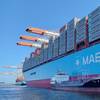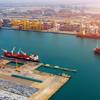Sunken Fishing Vessel Spilling Oil Off San Juan Island
A commercial fishing vessel that sank Saturday near San Juan Island, Wash. is spilling oil, the U.S. Coast Guard said.
All five crewmembers from the sinking Aleutian Isle were rescued by a Good Samaritan, and no injuries have been reported.
The 49-foot vessel sank with approximately 2,500 gallons of diesel fuel and a combined 100 gallons of hydraulic fluid and lubricant oil aboard, according to the Coast Guard. A sheen has been observed spanning more than two miles and was reported to have entered Canadian waters as the vessel continues to release small amounts of diesel.
At approximately 2 p.m. Saturday, watchstanders at Coast Guard Sector Puget Sound received a report that the fishing vessel Aleutian Isle was taking on water and in need of emergency assistance. Crews aboard an Air Station Port Angeles MH-65 Dolphin helicopter, a Station Bellingham 45-foot Response Boat-Medium, and the 87-foot Coast Guard Cutter Swordfish (WPB-87358) responded.
Once notified that all crewmembers were accounted for, the Coast Guard initiated pollution survey and initial response efforts alongside partner agencies. By approximately 5 p.m. a visible sheen was observed by on-scene personnel.
The Coast Guard is working with the Canadian Regional Operation Center as the incident occurred near the maritime border. Additionally, the Coast Guard is working with the San Juan County Office of Emergency Management, Washington State Department of Ecology, the Island Oil Spill Association and others.
The National Oceanic and Atmospheric Administration is conducting a resources at risk assessment and spill trajectory analysis. Specific attention is being given to protecting marine mammals in the area.
Coast Guard crews, along with personnel from NOAA, The Whale Museum and Sound Watch program have been on scene utilizing underwater hydrophone acoustics to monitor the affected area and surrounding waters for any marine mammal activity with particular focus on the Southern Resident Killer Whale (SRKW) population. While some members of the SRKWs were near the southern tip of San Juan Island at the time of the incident, no SRKWs were observed to be in the immediate proximity of the affected area and recent reports show them moving west in the Port Angeles area.
The National Oil Spill Liability Trust Fund was authorized to allocate $130,000 for commercial pollution response and salvage operations. Commercial divers and salvage teams have been contracted and arrived on scene Saturday evening. A plan is being developed to efficiently and safely enact containment and recovery of pollutants, removal of potential pollutants from the sunken vessel, and potential salvage of the wreckage. Boom and other materials have been deployed to recover pollutants and protect environmentally sensitive areas.
The vessel now lies at a depth of more than 100 feet of water. This and other factors are being taken into account as dive and salvage personnel develop a plan of action which must be approved by the unified command. Contractors developed a plan and worked to pre-stage equipment on San Juan Island earlier. Diving operations are expected to commence on Monday, and divers will work to conduct an on-scene assessment, plug the vents and then begin the defueling process. In order to ensure a safe work environment for divers, a safety zone will be implemented at 7 a.m. Monday for a distance of 1,000 yards around all responding dive boats.
A Sector Puget Sound Incident Management Division pollution response team is en route to conduct further surveys and supervise contractor containment and removal of recoverable pollutants.
The Coast Guard Cutter Swordfish is on scene to manage vessel traffic surrounding the area and enforce laws and regulations to protect marine species.
Locally, community air monitoring equipment has been moved into the San Juan islands to monitor the level of airborne contaminants to ensure the safety of the local community.
"We are working with government and industry partners to ensure an efficient and effective containment and recovery response," said Lt. Cdr. Brian Dykens, Sector Puget Sound Incident Management Division Chief. "The local public, the environment and protected marine species are our top priority."













